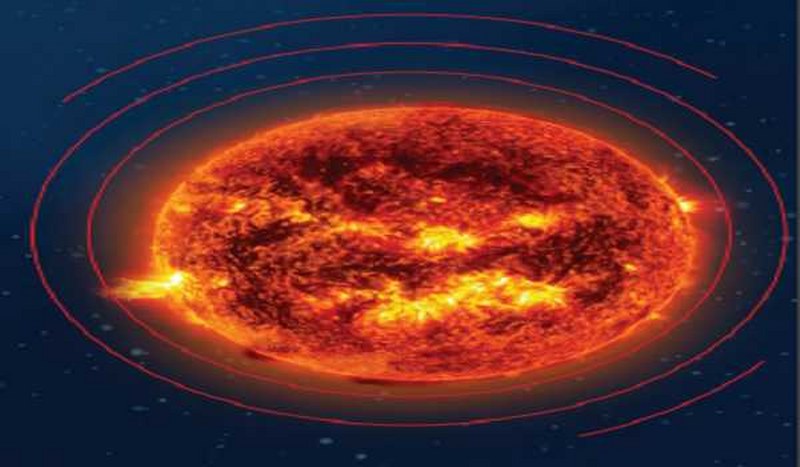 ISRO
ISRO Chennai/UNI: The Indian Space Research Organisation (ISRO) said its maiden Solar exploratory Mission Aditya-L1 is not a complete one to study the Sun due to limited mass, power and volume of the spacecraft that carries scientific payloads in space.
"Is Aditya-L1 a complete Mission to study the Sun. The obvious answer is a ‘NO’ which is not only true for Aditya-L1 but in general for any space mission," ISRO said.
The reason is that due to the limited mass, power and volume of the spacecraft that carries the scientific payloads in space, only a limited set of instruments with limited capacity can be sent onboard the spacecraft, the Space Agency said.
In case of Aditya-L1, all the measurements will be made from the Lagrange point L1. As an example, the various phenomena of the sun are multi-directional and therefore the directional distribution of energy of explosive/eruptive phenomena will not be possible to study with Aditya-L1 alone, it added.
Another Lagrange point known as L5 is a good vantage point for studying the Earth directed CME events and assessing the space weather.
Also, the polar regions of the sun are not well studied due to technological challenges of achieving spacecraft orbits for such studies.
"The sun's polar dynamics and magnetic fields are believed to play an important role in deriving the solar cycles.
"Further, the polarisation measurements of solar radiations at different wavelengths are required to understand the various processes occurring in and around the sun, ISRO said.
Support Our Journalism
We cannot do without you.. your contribution supports unbiased journalism
IBNS is not driven by any ism- not wokeism, not racism, not skewed secularism, not hyper right-wing or left liberal ideals, nor by any hardline religious beliefs or hyper nationalism. We want to serve you good old objective news, as they are. We do not judge or preach. We let people decide for themselves. We only try to present factual and well-sourced news.







